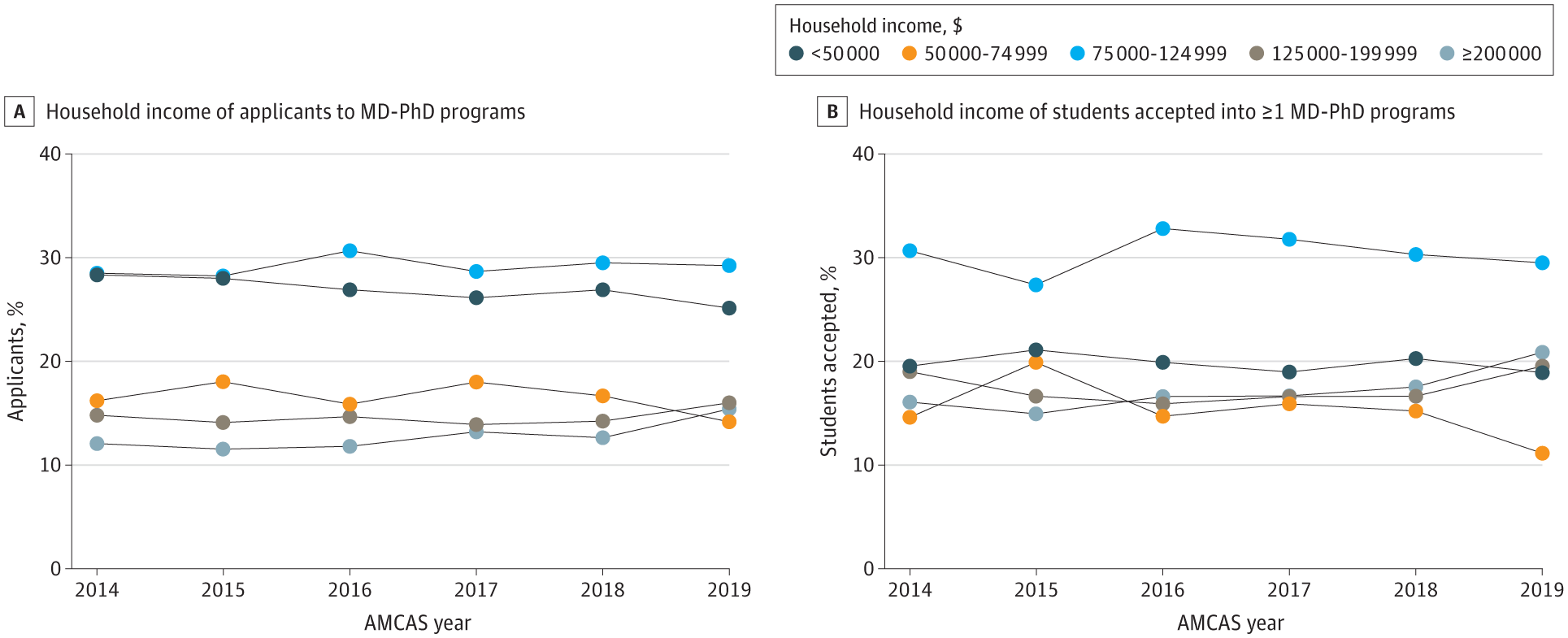The posts in this thread... I'm doing a bit of shaking my head.
I am a physician-scientist with two active R01 equivalent grants. I am from a poor background, and I am not a first generation immigrant. I am very happy to see this analysis.
As a physician-scientist, I am not poor. The idea that any physician-scientist is poor is ludicrous to someone who actually grew up poor. The MD/PhD stipend got me through the MSTP comfortably, and I continue to be grateful that I could launch my career without staring down hundreds of thousands in student loans.
I do believe that diversity in its many forms is important to enhance medicine, research, and society. I endorse the NIH viewpoint which not only includes race/ethnicity, but also includes disability and disadvantaged backgrounds. I believe it should also apply to AAMC (i.e. diversity is more than just URM).
NOT-OD-20-031: Notice of NIH's Interest in Diversity





